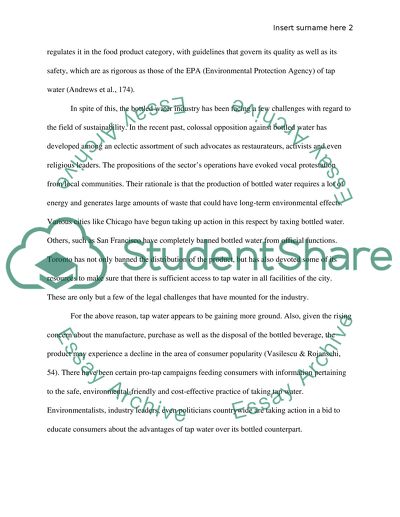Cite this document
(“The bottled water industry and its effects Essay”, n.d.)
The bottled water industry and its effects Essay. Retrieved from https://studentshare.org/miscellaneous/1637477-the-bottled-water-industry-and-its-effects
The bottled water industry and its effects Essay. Retrieved from https://studentshare.org/miscellaneous/1637477-the-bottled-water-industry-and-its-effects
(The Bottled Water Industry and Its Effects Essay)
The Bottled Water Industry and Its Effects Essay. https://studentshare.org/miscellaneous/1637477-the-bottled-water-industry-and-its-effects.
The Bottled Water Industry and Its Effects Essay. https://studentshare.org/miscellaneous/1637477-the-bottled-water-industry-and-its-effects.
“The Bottled Water Industry and Its Effects Essay”, n.d. https://studentshare.org/miscellaneous/1637477-the-bottled-water-industry-and-its-effects.


